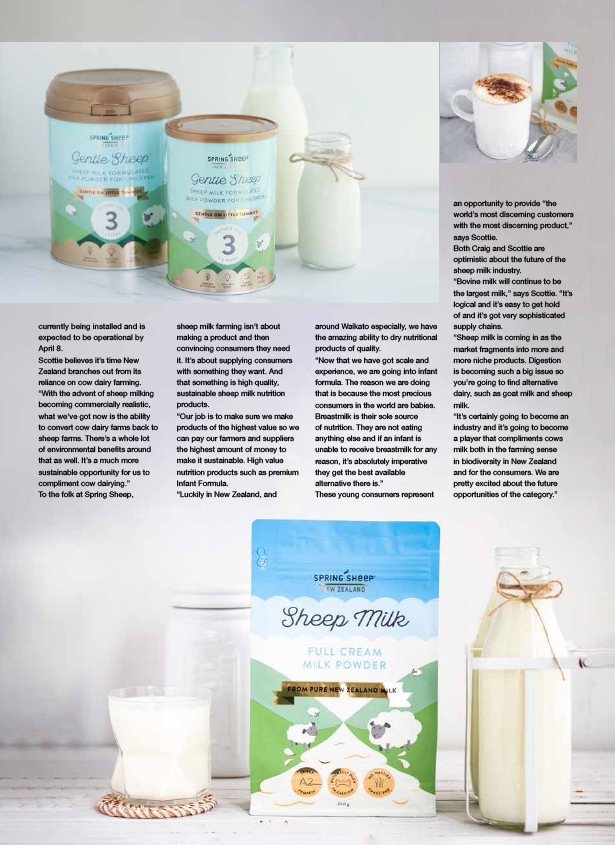
currently being installed and is
expected to be operational by
April 8.
Scottie believes it’s time New
Zealand branches out from its
reliance on cow dairy farming.
“With the advent of sheep milking
becoming commercially realistic,
what we’ve got now is the ability
to convert cow dairy farms back to
sheep farms. There’s a whole lot
of environmental benefits around
that as well. It’s a much more
sustainable opportunity for us to
compliment cow dairying.”
To the folk at Spring Sheep,
sheep milk farming isn’t about
making a product and then
convincing consumers they need
it. It’s about supplying consumers
with something they want. And
that something is high quality,
sustainable sheep milk nutrition
products.
“Our job is to make sure we make
products of the highest value so we
can pay our farmers and suppliers
the highest amount of money to
make it sustainable. High value
nutrition products such as premium
Infant Formula.
“Luckily in New Zealand, and
around Waikato especially, we have
the amazing ability to dry nutritional
products of quality.
“Now that we have got scale and
experience, we are going into infant
formula. The reason we are doing
that is because the most precious
consumers in the world are babies.
Breastmilk is their sole source
of nutrition. They are not eating
anything else and if an infant is
unable to receive breastmilk for any
reason, it’s absolutely imperative
they get the best available
alternative there is.”
These young consumers represent
an opportunity to provide “the
world’s most discerning customers
with the most discerning product,”
says Scottie.
Both Craig and Scottie are
optimistic about the future of the
sheep milk industry.
“Bovine milk will continue to be
the largest milk,” says Scottie. “It’s
logical and it’s easy to get hold
of and it’s got very sophisticated
supply chains.
“Sheep milk is coming in as the
market fragments into more and
more niche products. Digestion
is becoming such a big issue so
you’re going to find alternative
dairy, such as goat milk and sheep
milk.
“It’s certainly going to become an
industry and it’s going to become
a player that compliments cows
milk both in the farming sense
in biodiversity in New Zealand
and for the consumers. We are
pretty excited about the future
opportunities of the category.”